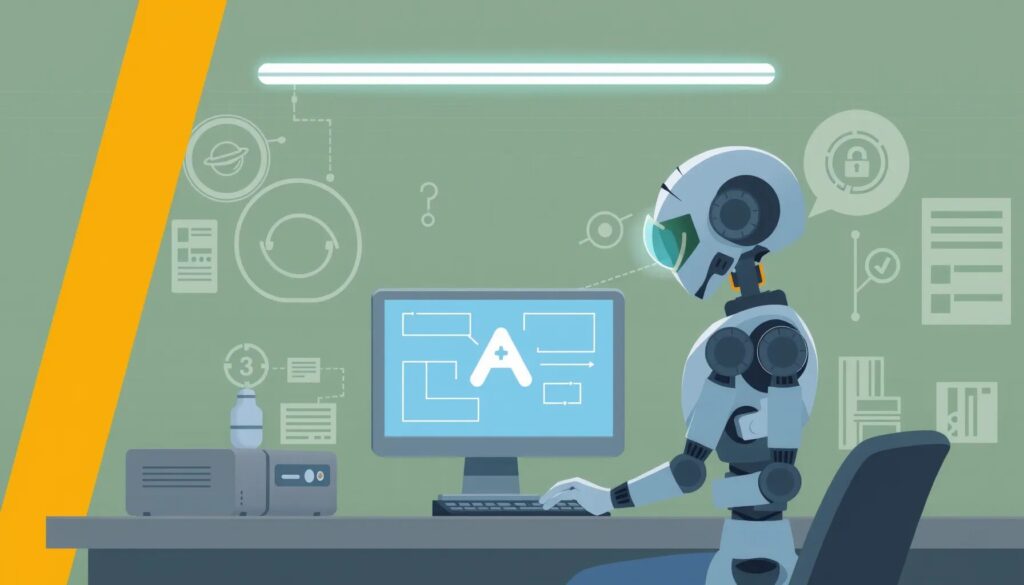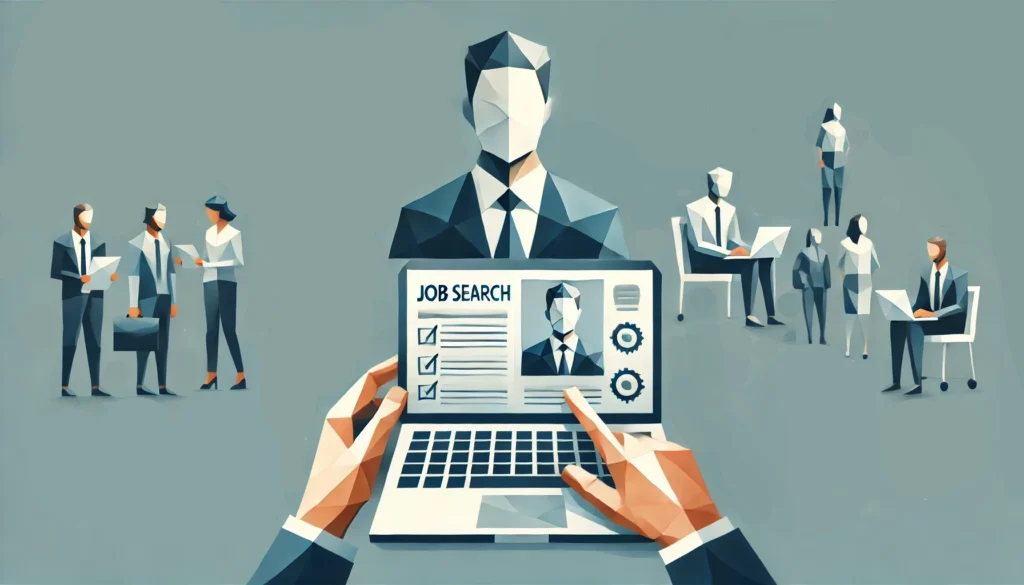
The gig economy has transformed how people work, offering freedom, flexibility, and independence to freelancers and contract workers. But as the world leans heavily into automation, there’s a pressing question: what does the future hold for those in the gig economy?
With artificial intelligence (AI) rapidly changing industries, the impact on freelance and contract work is undeniable. But before we dive into the nitty-gritty, let’s explore how AI is already shaking things up—and what that means for gig workers navigating this new landscape.
AI’s Role in Reshaping the Gig Economy
AI is already reshaping the way freelancers operate. From AI-powered platforms matching workers with jobs to tools automating once time-consuming tasks, the future looks… well, different. The question isn’t whether AI will affect the gig economy, but how deeply it will transform the very nature of freelance work.
Streamlining Administrative Tasks for Freelancers
One of the most immediate effects of AI is its ability to eliminate repetitive tasks. Freelancers often juggle multiple roles: they’re their own marketers, accountants, and customer service reps. But AI tools can now handle much of that load. Platforms that automate invoice creation, track billable hours, and even assist with taxes have cut down on the time-sink of administrative work, leaving freelancers to focus on what really matters—their craft.
AI and Job Matching: Finding Gigs Faster
Freelancers have always relied on platforms like Fiverr, Upwork, and Freelancer to find work. These marketplaces are evolving with AI-driven algorithms that do more than just list jobs. They match freelancers with opportunities based on their skillset, experience, and even work history. As these systems learn more about the workers using them, they become better at predicting the types of gigs that best suit each individual. This results in less time searching for work and more time working.
The Rise of AI-Generated Content and Services
One of the big questions freelancers in creative industries ask is: “Will AI replace me?” The rise of AI-generated content—from writing to design—raises this concern. AI tools can now produce blog posts, generate logos, and even design websites. But there’s a catch. While AI is fast, it often lacks the human touch that makes content truly engaging or designs that pop with creativity. For freelancers, this is an opportunity to focus on value-added services—the kind that machines can’t easily replicate.
Upskilling: A Necessity in the Age of Automation
If AI is taking over some freelance tasks, does that mean freelancers will have less work? Not necessarily. Instead, it’s pushing them to upskill. In the age of AI, gig workers need to adapt by learning new technologies and embracing skills that complement automation. For instance, AI tools for graphic design still require human oversight for creative direction. Writers who use AI-driven platforms can craft more personalized, nuanced content with the right input.
Job Displacement or Job Creation?
A common fear surrounding AI is the idea of job displacement. As AI becomes more sophisticated, some freelance jobs—particularly those that involve repetitive tasks—may become obsolete. However, new opportunities are also emerging. AI requires maintenance, training, and improvement. This opens up roles for freelancers skilled in areas like data annotation, software testing, or user experience (UX) feedback, giving rise to a new generation of work.
The Gig Economy’s Dependence on Human Creativity

While AI excels at performing routine and data-driven tasks, it struggles with creativity and intuition—areas where freelancers shine. Writers, artists, marketers, and other creatives bring something to the table that machines can’t quite match: human insight. AI can help streamline processes, but it can’t replicate the emotional connection, storytelling, or artistic flair that many clients are still seeking.
The Role of AI in Managing Freelance Workflows
Managing multiple projects at once is part of the freelancer lifestyle. AI can make this juggling act smoother by offering project management tools that track deadlines, milestones, and feedback automatically. These systems ensure that nothing slips through the cracks, helping freelancers stay organized without sacrificing the quality of their work.
AI-Enhanced Client Communication
Building strong client relationships is key to freelancing success. AI-powered chatbots are beginning to play a role here, helping freelancers manage client communication even when they’re off the clock. These chatbots can answer basic questions, send status updates, and manage appointment bookings, all while learning from interactions to improve future communications.
The Dark Side: Algorithmic Bias in Freelance Platforms
As AI increasingly controls who gets hired and which jobs are promoted on gig platforms, there’s a growing concern about algorithmic bias. AI systems, which are trained on historical data, may perpetuate biases that affect freelancers based on their location, gender, or even their online reputation. This has led to calls for greater transparency and fairness in the algorithms that power freelance job platforms.
Freelancers and AI: Collaborators, Not Competitors
Freelancers and AI don’t have to be adversaries. In fact, AI can be a collaborative partner, helping freelancers become more efficient and productive. By embracing AI tools, freelancers can automate tasks, find more jobs faster, and even provide new kinds of services that were previously out of reach. Rather than fearing job loss, the savvy freelancer will look at AI as a way to enhance their career.
Navigating the Ethical Challenges of AI in the Gig Economy
AI brings a wave of benefits to the gig economy, but it also raises important ethical concerns. As we’ve seen with algorithmic bias, there are risks to how AI systems impact freelancers, especially when it comes to who gets hired. If AI favors certain profiles based on incomplete or biased data, it could lead to unequal opportunities for freelancers from marginalized communities. Calls for better transparency in how these systems operate are growing. Freelancers must stay informed and advocate for fairness in the platforms they rely on.
The Gig Economy and Data Privacy
Another ethical challenge is data privacy. Freelancers, especially those using AI-powered platforms, share personal and professional data to connect with clients. While AI can streamline these connections, it also exposes freelancers to potential misuse of their data. How platforms collect, store, and use personal data is a growing concern. Freelancers should demand platforms with strong privacy protections, ensuring their data isn’t exploited without consent.
AI’s Impact on Payment and Pricing Structures
AI can impact how freelancers are paid. Some platforms use AI-driven payment systems to determine how much freelancers should charge based on their experience and previous jobs. While this can make pricing more competitive, it also risks undervaluing the expertise of seasoned freelancers. The rise of AI also introduces new payment models where freelancers are paid based on performance metrics determined by algorithms—metrics that may not always capture the full scope of a freelancer’s work.
Staying Competitive in an AI-Dominated Market
In a world where AI is taking over many processes, freelancers need to sharpen their competitive edge. But how? One way is by becoming experts in AI tools themselves. By mastering the AI platforms that clients use, freelancers can position themselves as consultants who can help businesses integrate AI into their workflows. Additionally, freelancers should emphasize their human qualities—empathy, creativity, and personal connection—attributes that AI, no matter how advanced, can’t replicate.
The Future of Gig Platforms: Human-AI Collaboration
The future of freelancing platforms is one where AI and human collaboration is the norm. Freelancers will increasingly use AI tools to manage their tasks, communicate with clients, and complete projects more efficiently. But the most successful gig workers will also be those who understand how to balance automation with a personal touch. Whether it’s reviewing AI-generated content or tailoring AI-driven design suggestions, freelancers will act as the final layer of quality control that makes work shine.
AI Creating New Niches in the Gig Economy
While AI may replace certain types of jobs, it also creates new niches that didn’t exist before. Think about AI training: many AI systems require vast amounts of data to learn, which has created a demand for freelancers who can tag, label, and organize data. Other emerging fields include AI ethics consulting, where freelancers advise companies on the responsible use of AI in business. By staying agile and curious, freelancers can discover and capitalize on these new opportunities.
Gig Workers Becoming AI Creators
Freelancers are not just users of AI—they can also become AI developers. Platforms like OpenAI and Google provide tools for non-programmers to build simple AI models. Freelancers skilled in marketing, design, or even writing can build AI-driven tools that solve industry-specific problems, turning them from gig workers into creators of innovative products. This shift from user to creator offers new income streams and career growth.
Leveraging AI for Global Expansion
AI also opens doors for freelancers to work on a global scale. Language translation tools powered by AI, for example, break down barriers for freelancers working with international clients. AI also helps bridge cultural gaps by offering insights into consumer behavior in different countries. This means freelancers no longer have to limit themselves to local markets; they can leverage AI to expand their client base globally.
Balancing Efficiency with Creativity
One of the biggest challenges freelancers face in the age of automation is maintaining creativity while maximizing efficiency. AI tools are excellent for streamlining workflows, but they can also lead to creativity burnout if over-relied on. The key is to strike a balance. Freelancers should use AI to handle mundane tasks, freeing up mental space to focus on what they do best—innovating and creating. At the end of the day, the combination of human creativity and AI efficiency is unbeatable.
Freelancers as Digital Nomads in an AI-Driven World
The gig economy has already turned many freelancers into digital nomads—workers who can work from anywhere with an internet connection. AI enhances this lifestyle by providing tools that allow freelancers to manage multiple clients and projects with ease, no matter where they are. Whether it’s AI scheduling assistants or virtual project management tools, freelancers can now enjoy the freedom of travel while maintaining a robust client base. AI empowers this flexibility, enabling more workers to adopt a lifestyle of global mobility.
Overcoming the Fear of AI
It’s natural for freelancers to feel apprehensive about AI, especially with the talk of automation replacing jobs. But it’s crucial to recognize that AI is a tool, not a threat. It’s up to freelancers to decide how to use it. The workers who thrive in this new landscape will be those who embrace AI as a way to enhance their work, not fear it. By focusing on human creativity, adaptability, and relationship-building, freelancers can ensure their skills remain in demand, no matter how advanced AI becomes.
Final Thoughts: Thriving Alongside AI
In the age of automation, freelancers and contract workers need to adapt, grow, and evolve with AI—not against it. The gig economy is still full of opportunities, especially for those who can balance the efficiencies of AI with the personal connections and creativity that only humans can provide. The future of freelancing doesn’t mean competing with AI; it means collaborating with it, finding ways to make work smarter, faster, and more meaningful.
As automation continues to evolve, those who stay curious, keep learning, and remain flexible will thrive. The gig economy may be changing, but for the freelancer ready to embrace AI, the future is brighter than ever.
Resources
AI Tools for Freelancers
- Grammarly: An AI-powered writing assistant that helps with grammar, tone, and style in content creation.
- Canva: AI-driven graphic design platform for freelancers to create professional designs without advanced skills.
- Jasper AI: A powerful AI content generator that assists in writing blog posts, emails, and more.
Gig Platforms Utilizing AI
- Upwork: One of the largest freelance platforms using AI to match freelancers with job postings based on skills and experience.
- Fiverr: AI-driven platform that curates personalized gig opportunities for freelancers.
- Toptal: A highly selective freelance marketplace using AI to vet top freelancers in tech, design, and finance.
Educational Platforms for Upskilling
- Coursera: Offers courses on AI, machine learning, and other in-demand skills for freelancers looking to adapt to automation.
- LinkedIn Learning: Provides a variety of lessons on AI tools, project management, and essential skills for freelancers.
Freelance Communities for Support and Networking
- Freelancers Union: A platform offering resources, advocacy, and insurance options for freelancers, particularly those affected by automation.
- Indie Hackers: An online community for freelancers and entrepreneurs to share their experiences and insights about navigating AI and automation.



